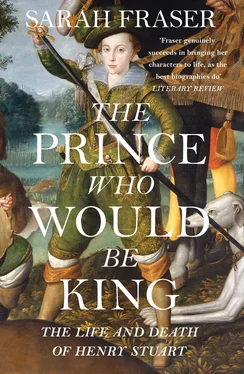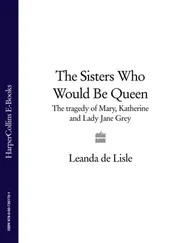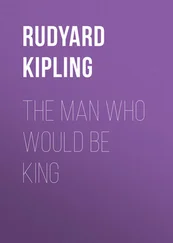Sarah Fraser - The Prince Who Would Be King - The Life and Death of Henry Stuart
Здесь есть возможность читать онлайн «Sarah Fraser - The Prince Who Would Be King - The Life and Death of Henry Stuart» — ознакомительный отрывок электронной книги совершенно бесплатно, а после прочтения отрывка купить полную версию. В некоторых случаях можно слушать аудио, скачать через торрент в формате fb2 и присутствует краткое содержание. Жанр: unrecognised, на английском языке. Описание произведения, (предисловие) а так же отзывы посетителей доступны на портале библиотеки ЛибКат.
- Название:The Prince Who Would Be King: The Life and Death of Henry Stuart
- Автор:
- Жанр:
- Год:неизвестен
- ISBN:нет данных
- Рейтинг книги:3 / 5. Голосов: 1
-
Избранное:Добавить в избранное
- Отзывы:
-
Ваша оценка:
- 60
- 1
- 2
- 3
- 4
- 5
The Prince Who Would Be King: The Life and Death of Henry Stuart: краткое содержание, описание и аннотация
Предлагаем к чтению аннотацию, описание, краткое содержание или предисловие (зависит от того, что написал сам автор книги «The Prince Who Would Be King: The Life and Death of Henry Stuart»). Если вы не нашли необходимую информацию о книге — напишите в комментариях, мы постараемся отыскать её.
NOW THE SUBJECT OF BBC2 DOCUMENTARY The Best King We Never Had
The Prince Who Would Be King: The Life and Death of Henry Stuart — читать онлайн ознакомительный отрывок
Ниже представлен текст книги, разбитый по страницам. Система сохранения места последней прочитанной страницы, позволяет с удобством читать онлайн бесплатно книгу «The Prince Who Would Be King: The Life and Death of Henry Stuart», без необходимости каждый раз заново искать на чём Вы остановились. Поставьте закладку, и сможете в любой момент перейти на страницу, на которой закончили чтение.
Интервал:
Закладка:
The king encouraged his sons to practise dancing, ‘though they whistle and sing to each other for music’ when they could not get hold of a musician. The children sometimes fooled around. Their dancing master, frustrated by the failure of some of Henry’s friends to keep time as he taught them, said ‘they would not prove good soldiers, unless they kept always true order and measure’. Dancing connected Henry to the martial arts.
‘What then must they do,’ asked Henry, ‘when they pass through a swift-running water?’ and then have to find their own feet, and keep their own ‘measure’, not merely march in time.
Still, the old man kept telling them off for carelessness.
‘Remember, I pray you,’ Henry appealed to him, ‘that your self was once a boy.’
The prince’s preference for a life of action over learning and contemplation irritated James. On occasions, the king ‘admonished and set down’ Henry for his lacklustre academic performance and resorted to ‘other demonstrations of fatherly severity’ as well. Maybe he smacked him. James threatened that if Henry did not do better, as a Christian prince must, he would leave the throne to Charles, ‘who was far quicker at learning and studied more earnestly’. When Newton berated his precious charge, Henry responded that he had had enough improving for one day. ‘ I know what becomes a Prince!’ he said. ‘It is not necessary for me to be a Professor,’ like you, ‘but a soldier and a man of the world. If my brother is as learned as they say, then we’ll make him Archbishop of Canterbury.’
Sibling rivalry never seemed to enter his relationship with Elizabeth. When she stayed nearby, they rode together for hours every other day. After they parted again, she could not resist trying to maintain the intimacy. ‘My letters follow you everywhere. I hope you find them as agreeable as they are frequent,’ she sighed wryly. ‘I know they don’t contain any important subject matter that could make them recommended.’ Henry reassured his sister: ‘Your kind love and earnest desire that we may be together. I … assure you that, as my affection is most tender unto you, so there is nothing I wish more than that we may be in one company … But I fear there be other considerations which make the King’s majesty to think otherwise, to whose well seeming we must submit ourselves.’ Security, duty and ritual placed strict constraints on his freedom.
If the scope and intensity of his academic education fell short of his father’s expectations and an illustrious Tudor past, Henry’s piety seemed of a piece with some of his forebears. His household listened to sermons several times a week. All members of the royal family attended sermons, arguing afterwards about how it lighted them on the road to salvation, the meaning of life. But the prince was thought to need his own chaplains, to encourage him to work for the salvation of his soul.
The king asked James Montagu, dean of the chapel royal, for the names of men who might be suitable to serve Henry. An active, evangelical Calvinist, Montagu was first cousin to John Harington and Lucy Bedford and former first master of the Puritan seminary at Sidney Sussex College, Cambridge. Montagu’s personal beliefs and family connections made the godly hope he would place more ‘evangelical’ than moderate ‘preachers around Prince Henry’ at St James’s.
Cambridge-educated Puritan, Henry Burton, petitioned to serve the prince and was given a position of the highest importance, as Clerk of the Closet, the prince’s principal chaplain and keeper of his conscience. Burton sought royal service in the belief that God had chosen the Stuarts to continue the great work of perfecting the true Calvinist faith on earth in England. He wrote a tract for Henry on the Antichrist, naturally identifying it as the pope. Henry kept the work on his shelf. Essex’s tutor, Dr Gurrey, persuaded Joseph Hall, a renowned Puritan ‘neo-Stoic’ – a philosophy which attempted to combine Christianity and Stoicism – to preach to Henry’s circle. Henry liked him and asked him to preach again.
Hugh Broughton joined the household as tutor to young Rowland Cotton. Renowned for his immense Hebrew scholarship, Broughton devoted three works of divinity to Henry. Yet, in spite of his scholarly brilliance, James had not invited him to help create the new version of the Bible the king had commissioned, since Broughton was known to be a cleric of pronounced Puritan sympathies. Broughton preached an exposition of the Lord’s Prayer before Henry. It earned him a place as another of his preachers.
As at Stirling, Henry’s Calvinist clergy encouraged him to review his conscience daily in private acts of self-examination, comparing how his thoughts and actions lived up to the model of simplicity, plainness and purity Christ offered in the Bible. Not easy for a royal Stuart, it was the kind of intense self-examination Shakespeare had put Hamlet through.
The moderate clergy of the Church of England also recommended the private measuring up of one’s behaviour against Christ’s teaching; but they advocated a ceremony- and ritual-based religious practice as well. Bishops in ornate vestments presided over the regular ritual consumption of the body and blood of Christ in host and wine. Sublime religious music accompanied the great mythic drama of this holy communion. The whole royal family joined with the established church to celebrate feast days such as the Accession Day of the monarch, Armada Day, the Epiphany, Christmas and Easter. Nothing galled the Puritans more than the official church’s contented drift towards replacing the veneration of Catholic symbols with royalist and nationalist ones.
A jingle began to circulate. If:
Henry the 8 pulled down abbeys and cells,
Henry the 9 will pull down Bishops and bells.
Treasonous in its inference of the death of King James, this piece of Puritan doggerel anticipated the rule of Henry IX to be very different to that envisioned by his parents – closer perhaps to the brutal iconoclast phase of Henry VIII’s reign. How far this reflected who Henry really was, was impossible to see at his young age. He absorbed input from all sides.
For now, the daily life of Henry’s household established it as an extension of the king’s court, illustrating its policies, exploring its possibilities. But beyond that, Nonsuch already contained the potential to be what a Prince of Wales’s household so often is – an alternative source of power.
To give Henry some experience in the business of war and foreign affairs – and after his small ship proved such a hit – James assigned apartments at Nonsuch to the Earl of Nottingham. Lord High Admiral from 1585 to 1619, including the whole period of the Spanish Armada war, Nottingham possessed a breadth of court, government and military experience few others could boast. In 1604 he had just returned from leading a huge delegation to Madrid to negotiate a peace treaty to end the war. Nottingham was available to mentor Henry, informally, about diplomacy, his future navy, or anything else that came up touching on the business of being a king.
The navy was a private fleet, maintained by the monarch out of his own income. After taking ownership of the Disdain , Henry questioned Nottingham exhaustively on the building and equipping of ships; the comparison of the royal navy with the great fleets of the privateers; how he would fight and win sea battles like the Cádiz raid and the Armada; how he would avoid defeat; how the navy could be used to defend merchant shipping against attack; how he might mount expeditions to discover new lands and claim them for England and himself, and enrich his people.
Nottingham wrote that the prince and his friends went ‘a fishing at my house in Carshalton’, near Nonsuch, and also ‘hunted afterwards in Beddington Park’. But the Lord High Admiral soon begged for release from his service, ‘weary with waiting on the Prince’. He had run his long race at court, and perhaps wanted to step back a bit.
Читать дальшеИнтервал:
Закладка:
Похожие книги на «The Prince Who Would Be King: The Life and Death of Henry Stuart»
Представляем Вашему вниманию похожие книги на «The Prince Who Would Be King: The Life and Death of Henry Stuart» списком для выбора. Мы отобрали схожую по названию и смыслу литературу в надежде предоставить читателям больше вариантов отыскать новые, интересные, ещё непрочитанные произведения.
Обсуждение, отзывы о книге «The Prince Who Would Be King: The Life and Death of Henry Stuart» и просто собственные мнения читателей. Оставьте ваши комментарии, напишите, что Вы думаете о произведении, его смысле или главных героях. Укажите что конкретно понравилось, а что нет, и почему Вы так считаете.












